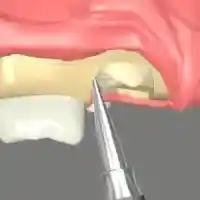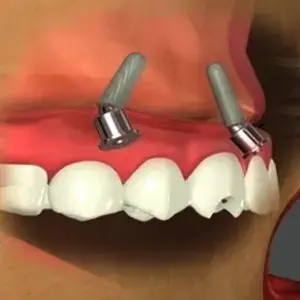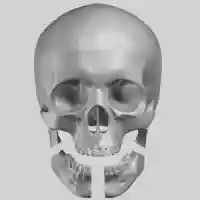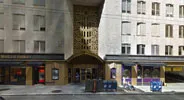Wisdom Teeth in San Francisco
Are you feeling any discomfort in the rear of your mouth? Are you wondering whether it's time to address your wisdom teeth? Look no further than our guide to wisdom teeth in San Francisco. We will delve into everything you need to know about these third molars, their removal, and the recovery process. Whether you're considering wisdom tooth extraction or seeking answers to common questions about wisdom teeth, we've got you covered.
Wisdom teeth, often referred to as third molars, are the final set of molars to appear in your mouth. While they can be valuable when healthy and properly aligned, they often pose issues that require intervention.
What Are Wisdom Teeth?
Wisdom teeth are the final set of molars that typically appear in late adolescence or early adulthood. In total, adults can have up to four wisdom teeth, with one in each corner of the mouth. These teeth served a purpose for our ancestors who had different dietary habits, but modern diets and changes in jaw structure have made them less necessary.
At What Age Do Wisdom Teeth Typically Emerge?
Wisdom teeth typically start to emerge between the ages of 17 and 25, which is why they are often referred to as "third molars." Historically, they were necessary to aid our ancestors in grinding down tough foods such as roots, nuts, and raw meat. However, due to dietary changes and evolution, our jaws have become smaller, making it challenging for wisdom teeth to fit properly.
5 Common Signs and Symptoms of Wisdom Teeth:
While not everyone experiences issues with their wisdom teeth, some common signs and symptoms may indicate problems:
- Pain or Discomfort: This can be a dull ache or sharp pain in the back of the mouth.
- Swelling and Inflammation: The gums around the wisdom teeth may become red and swollen.
- Jaw Stiffness: Difficulty in opening your mouth fully can be a sign of impacted wisdom teeth.
- Bad Breath: Food particles trapped around partially erupted wisdom teeth can lead to bad breath.
- Tender or Bleeding Gums: Irritation or infection around wisdom teeth can cause gum tenderness or bleeding.
When is the Right Time to Remove Wisdom Teeth and Why Is It Necessary?
The extraction of wisdom teeth, also known as third molars, is often recommended based on various factors related to oral health. Here's a more detailed look at when and why wisdom teeth removal becomes necessary:
When to Consider Wisdom Teeth Removal in San Francisco:
- Impaction: Wisdom teeth often don't have enough space to emerge properly, leading to impaction. This can result in pain, swelling, and infection, making removal necessary.
- Pain and Discomfort: Wisdom teeth can cause significant pain and discomfort as they push through the gums, especially if they're impacted or misaligned.
- Infection: Wisdom teeth are more susceptible to infection due to their location at the back of the mouth, making extraction necessary to prevent recurrent infections.
- Damage to Adjacent Teeth: Sometimes, wisdom teeth can grow at odd angles, pushing against neighboring teeth, causing damage or misalignment. Removal may be needed to preserve the health of adjacent teeth.
Proactive Removal:
In some cases, dentists or oral surgeons may recommend proactive removal even before these issues arise. This preventive approach is often taken when:
- The mouth lacks sufficient space for wisdom teeth to come in properly.
- X-rays show potential problems with wisdom tooth development.
- The patient's overall oral health and comfort would benefit from the removal.
Consequences of Ignoring Impacted Wisdom Teeth in San Francisco:
Ignoring impacted wisdom teeth can lead to various complications, including:
- Infection: Impacted wisdom teeth can become breeding grounds for bacteria, leading to painful infections.
- Damage to Surrounding Teeth: Wisdom teeth can push against neighboring teeth, causing misalignment or damage.
- Cysts and Tumors: In rare cases, cysts or tumors can form around impacted wisdom teeth, necessitating more extensive surgery.
The Process of Wisdom Teeth in San Francisco:
Wisdom tooth extraction is a common dental procedure that typically follows these steps:
- Consultation: Your dentist will evaluate your wisdom teeth and recommend removal if necessary. X-rays may be taken to assess the position of the teeth.
- Anesthesia: To ensure a painless procedure, you will receive either local or general anesthesia. For individuals who experience dental anxiety, there are sedation choices accessible as well.
- Extraction: The dentist will make an incision in the gum tissue, remove the wisdom tooth, and stitch the incision closed.
- Recovery: You'll be monitored as you wake up from anesthesia, and post-operative instructions will be provided.
Wisdom Teeth Recovery in San Francisco: What to Expect After Surgery
After wisdom tooth extraction, you can expect:
- Swelling and Bruising: Some swelling and bruising are normal, but they should subside within a few days.
- Pain and Discomfort: Pain can be effectively controlled with prescribed or over-the-counter medications.
- Dietary Restrictions: A soft diet is recommended initially to avoid disrupting the healing process.
- Oral Hygiene: Gentle oral care routines are essential to prevent infection.
Do's and Don'ts After Wisdom Teeth Procedure in San Francisco:
Do:
- Diligently follow your dentist's post-operative instructions after your wisdom teeth procedure in San Francisco.
- Take any prescribed medications exactly as directed.
- Maintain impeccable oral hygiene to facilitate the healing process.
Don't:
- Avoid smoking, as it can hinder the healing process.
- Refrain from drinking through straws, as the suction may disrupt the surgical site.
- Resist consuming hard or crunchy foods during the initial recovery phase to promote a smooth healing process.
Sedation Choices for Wisdom Teeth Extraction in San Francisco:
When preparing for the extraction of wisdom teeth in San Francisco, your oral surgeon will engage in a thorough discussion about the various sedation options available. The primary aim is to ensure your utmost comfort throughout the procedure. These options encompass local anesthesia, IV sedation, or general anesthesia, and the selection will be based on your specific requirements and personal preferences.
Diet Tips After Wisdom Teeth Extraction in San Francisco:
What to Eat During Early Recovery:
- Opt for a soft diet to promote healing after wisdom tooth extraction.
- Choose easily chewable and gentle foods such as mashed potatoes, yogurt, and smoothies.
- Include nourishing options that are gentle on healing gums to minimize discomfort.
What to Avoid During Early Recovery:
- Steer clear of hard, crunchy, or spicy foods in the initial recovery phase.
- Follow your dentist's guidance when reintroducing solid foods.
- Gradually transition to regular foods as healing progresses and discomfort subsides.
- Remember, proper dietary care is crucial for a smooth and successful recovery process.
Choosing Wisdom Teeth in San Francisco: Towards a Healthier Smile
Addressing your wisdom teeth in San Francisco is essential for maintaining oral health and preventing potential complications. Whether you're experiencing discomfort or seeking proactive advice, consulting with a dentist experienced in wisdom tooth removal is a wise decision. Remember that early intervention can minimize pain and reduce the risk of complications. Your well-being and long-term oral health are our top priorities at our Wisdom Teeth Services in San Francisco. Whether it's a routine extraction or a more complex case that necessitates dental implants or bone grafting, our experienced team is here to deliver the highest level of care specific to your needs.
If you have any questions or concerns, please don't hesitate to contact us. We are dedicated to ensuring your comfort and satisfaction throughout your wisdom teeth treatment journey, including top-notch dental implants and expert bone grafting in San Francisco. Call us at 415-318-1818 today for help with your wisdom teeth concerns.
Frequently Asked Questions on Wisdom Teeth in San Francisco
How Do I Know if My Wisdom Teeth Need to Be Removed?
Wisdom teeth may need removal if they cause pain, swelling, crowding, or infection. A dentist or oral surgeon will evaluate your X-rays and symptoms to determine if extraction is necessary.
What Happens If Impacted Wisdom Teeth Are Not Removed?
Ignoring impacted wisdom teeth can lead to pain, swelling, infections, gum problems, and even damage to nearby teeth. Removing them early helps prevent complications and supports long-term oral health.
Does Wisdom Tooth Extraction Hurt?
With modern sedation and anesthesia, wisdom tooth removal is a comfortable process. Most patients experience minimal discomfort during recovery, which typically improves within a few days.


 Dental Implants
Dental Implants
 Teeth In An Hour
Teeth In An Hour
 Bone Grafting
Bone Grafting
 Facial Trauma
Facial Trauma
 Other Services
Other Services
